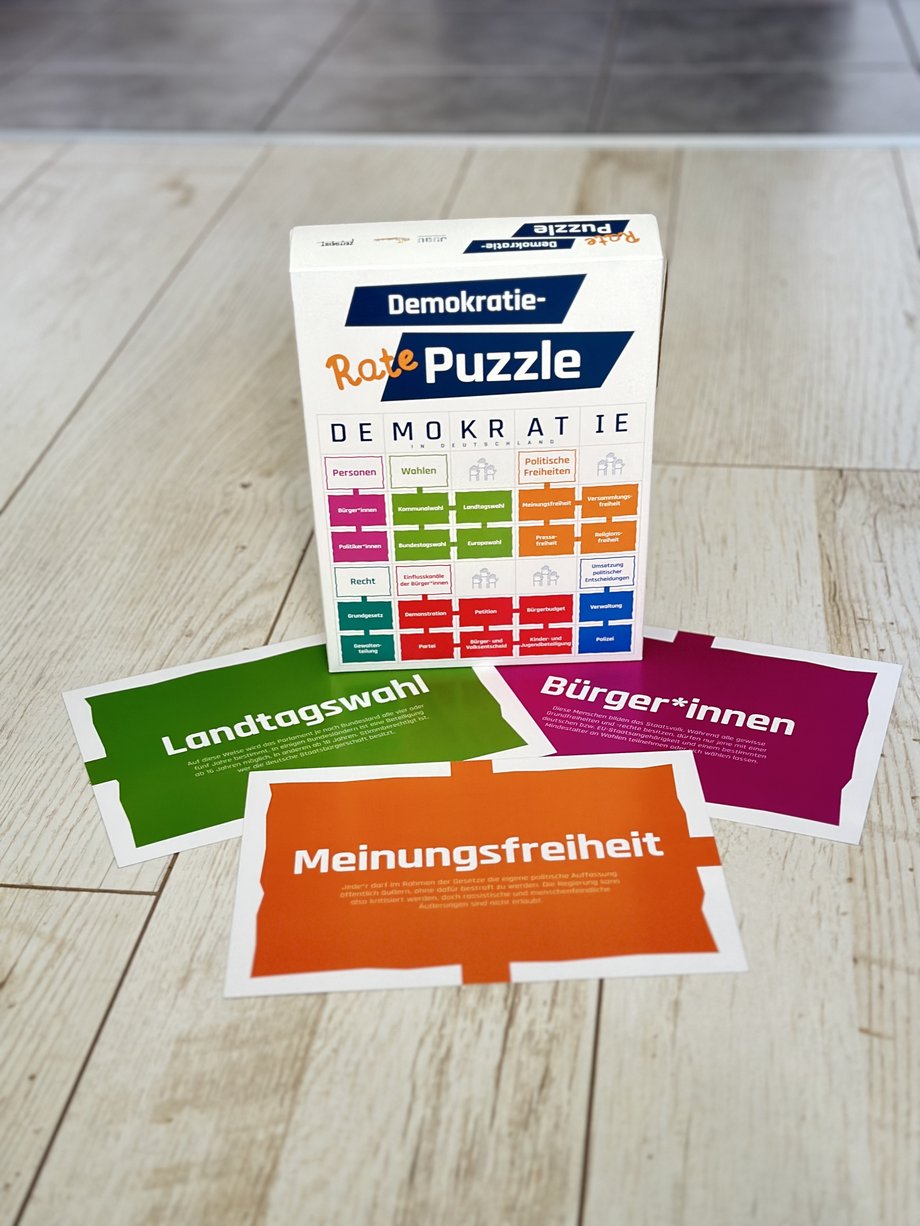Democracy guessing puzzle
In order to make a difference in our society, knowledge of democracy in Germany is helpful: What rights and political freedoms do I have? And how can I get involved in concrete terms - be it in elections or through other forms of participation? With its playful approach, the democracy guessing puzzle aims to systematically compile the central elements of democracy in Germany, which then enables a more in-depth discussion based on this. The game is designed for the Democracy Day at school and for youth education work. In addition to its function as a guessing game, the terms can also be used as story cards.
We would like to express our special thanks to the JUBU model project, which provided us with a free copy for the lab!
Link to the democracy guessing puzzle:https://jugend-budget.de/demokratie-rate-puzzle/
Number of participants
for smaller groups of up to 15 people
Age recommendation
from 16 years
Duration
Depending on group size between 15 and 30 minutes
Place
Seminar room with free tables; blackboard/flipchart; chairs for chair circle
Structure and procedure
The guessing puzzle consists of 35 cards; 5 cards for the heading "Democracy in Germany", 6 cards with top categories, 20 cards with terms and explanatory texts and 4 joker cards
The following game variant is particularly suitable for a discussion round in open youth work. (The game also offers a variant for use in lower and upper secondary schools).
Preparation
The 20 term cards are distributed on the tables or on the floor, unsorted and with the term facing upwards. The 6 cards with the framed top categories and the cards with the heading "Democracy in Germany" are hung on the board. The joker cards are not needed.
Execution
Step 1:
- The young people are invited to look at the term cards at their leisure, as if they were visiting an exhibition, each person individually if possible.
- In the next step, when they have seen all the terms, they should (still wandering) choose a term that particularly appeals to them, that they have already dealt with or that they associate with something. If several young people want to pick the same term, they can share the card.
Step 2:
- Everyone sits down in a circle of chairs. In turn, each person tells what contact they have had with the term or what they associate with the term. This can lead to initial questions and conversations or discussions.
- The facilitator can address any terms that no one has chosen specifically.
Step 3 (optional):
- The young people assign their (and possibly the remaining) cards to the appropriate 6 main categories as a team and lay out the puzzle.
- If necessary, the group discusses the arrangement and open questions
.

